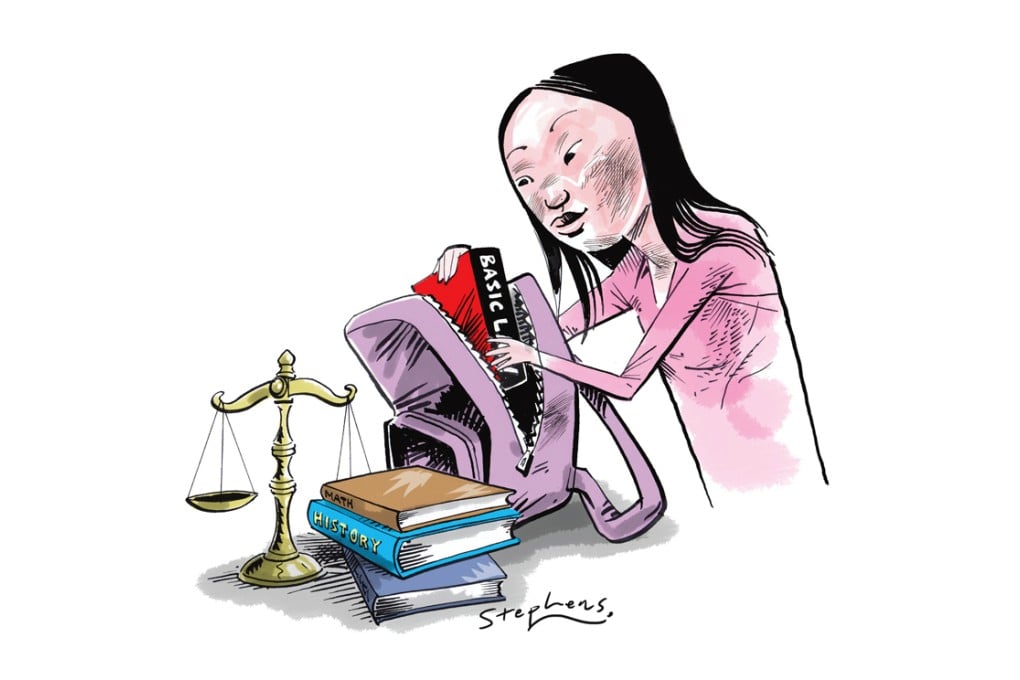Teach Basic Law in liberal studies in the true spirit of inquiry
Kerry Kennedy says including the Basic Law in liberal studies could help develop enlightened thinkers, as long as the aim is to broaden, rather than narrow, the school curriculum

Now, it seems, Occupy Central is to be blamed on liberal studies. There has been too much teaching about politics and this is what has brought students onto the streets. At least this is the implication of the Democratic Alliance for the Betterment and Progress of Hong Kong's advice to the Education Bureau that the politics component of liberal studies should be reduced.
Instead, there should be a greater focus on the Basic Law rather than the rule of law and socio-political participation. In other words, a more conservative school curriculum will produce more conservative citizens.
There are many problems with the DAB argument. The main one is that only two cohorts of secondary school students have completed liberal studies, representing those currently in the first and second year of university. Most of the students involved in the Occupy protests have probably never heard of liberal studies.
A second problem is that students are not necessarily passive learners soaking up everything teachers and schools tell them. Study after study has shown that students think for themselves and make their own judgments about issues.
A third problem is the tendency to regard the school curriculum as an instrument of propaganda, as was the case in the national education debates in 2012.
Nevertheless, the issues raised by the DAB and what appears to be a not unfavourable response from the Education Bureau deserve further consideration: the need to consider the role of the school curriculum in these particular times and the suggestion to focus more teaching on the Basic Law.